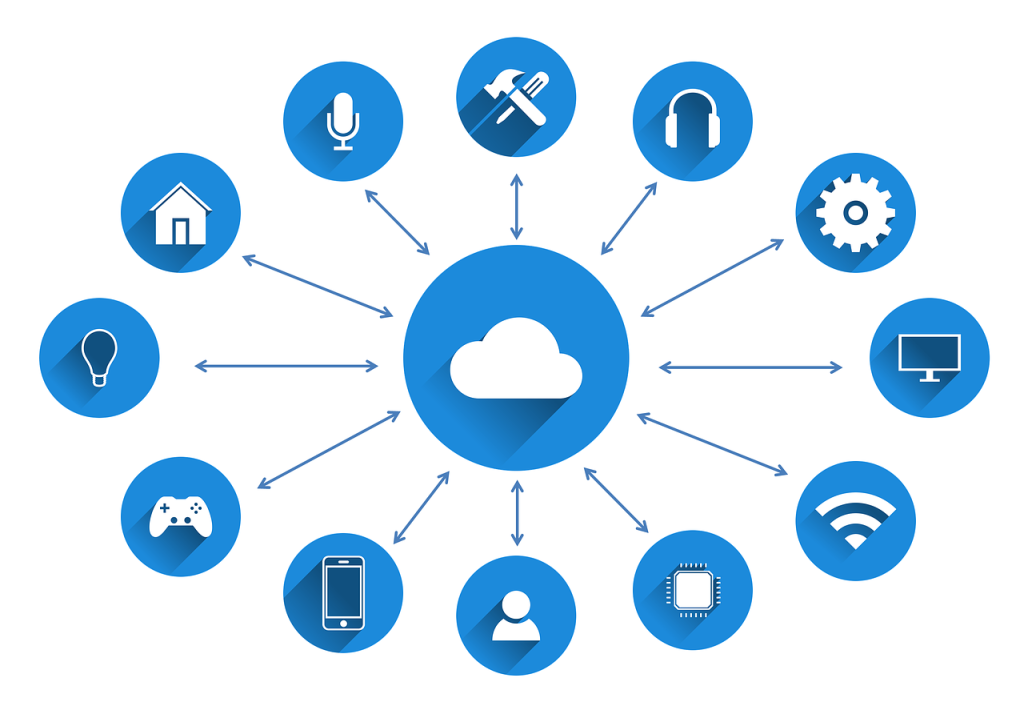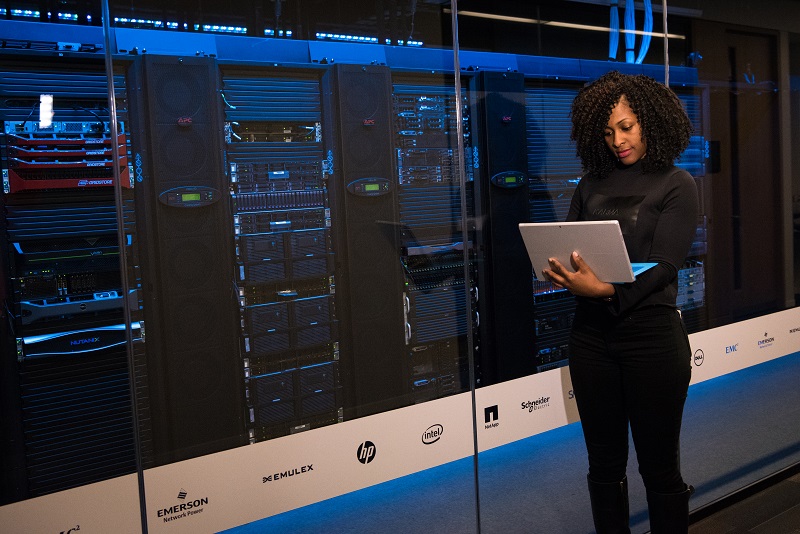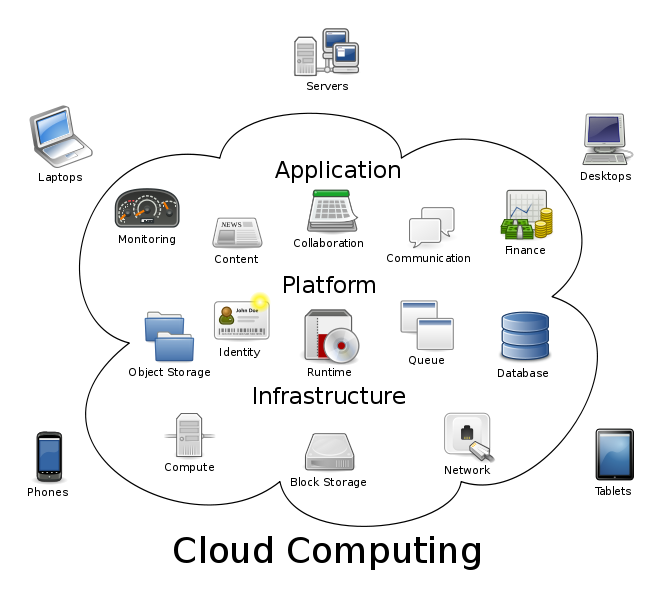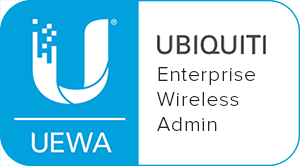What Is Cloud Computing? How Does ‘The Cloud’ Work?
What is cloud computing? How does it work? The term “cloud” when talking about technology or computing, is not new. In simple terms, ‘cloud’ is a metaphor for the Internet. In fact, cloud symbols are repeatedly used to depict the Internet on diagrams. If you think of the Internet as a virtual ‘space’ that connects users from all over the globe, it is like a cloud. It shares information by the way of networks.
Since the birth of the internet, the digital landscape has generated an immense amount of data, much of which is stored in the cloud. And it played a viTherefore, reliable cloud servers are essential for achieving efficiency in cloud computing. These physical machines provide processing power, vast storage, and networking resources to help businesses achieve a seamless service.tal role in transforming how people manage, access, and share this data with others. With the cloud, you can access files, applications, and software from anywhere at any time, even on any device.
So, if we go back to the question of what cloud computing actually is, it refers to sharing resources, software and information through a network. In this case, via ‘the Internet’ or more correctly, an Internet connection. Information and data is stored on physical or virtual servers, which are maintained and controlled by a cloud computing provider, such as Amazon and their AWS product, Microsoft Azure or Google Cloud, to name just a few. As a personal or business cloud computing user, you can access your stored information on the ‘cloud’, via an Internet connection, or bypass the public Internet entirely via a direct cloud connection.
Therefore, reliable cloud servers are essential for achieving efficiency in cloud computing. These physical machines provide processing power, vast storage, and networking resources to help businesses achieve a seamless service.
What Are The Different Types Of Cloud Computing?
Cloud computing can mean many different things these days, but there’s three main categories of cloud services. You might have heard about these or use them already; Software as a Service (SaaS), for example – Microsoft 365, Platform as a Service (PaaS), example – salesforce.com and Infrastructure as a Service (IaaS), example – Rackspace.
SaaS: Are cloud-based applications delivered over the Internet. You can access them through a web browser or download an application on your computer or mobile device. Usually, users subscribe for a fee depending on the length of time they would want to use the service. And they can usually cancel this at any time.
PaaS: Software developers mostly use PaaS for creating, testing, and deploying software applications. It’s a complicated but essential tool that many developers use to focus on developing and deploying software builds, without worrying about building an infrastructure to test its efficiency and success before launching.
IaaS: Is built for organizations that prefer complete control over their computing environment. With IaaS, they can manage their own virtual servers, storage, and networks.

‘The Cloud’ Covers Many Different Technologies Today
What Are Popular Examples Of Cloud Computing Services At Work Today?
There has been a significant evolution in the way in which we save, store and access data. You no longer need to save documents on one particular device. You can access personal files and data from anywhere with a solid Internet service connection, at any time. That’s all because of cloud technology. The cloud storage market spoils you for choice too.
A variety of cloud storage providers are available, many of which offer free storage space. Out with file saving on floppy disks, CDs and even USB flash drives, in with cloud storage providers such as Dropbox, Box.com and Backblaze. (Sites like Cloudwards allows you to compare a range of different cloud storage providers in one place).

Physical servers are now virtual via cloud computing
How Does Cloud Storage Work?
Via an Internet service connection, cloud storage works by enabling users access and to download data on any chosen device, such as a laptop, tablet or smartphone. Cloud storage users can also edit documents simultaneously with other users as well, making it easier to work away from the office. Depending on specific needs, prices vary for cloud storage. As an individual user, you can usually get initial amounts of cloud storage for free – such as 5GB with Apple iCloud, which previously dealt with some highly publicized cloud security issues. You have to pay a fee for additional storage. Common price models include monthly or yearly rates, depending on the services you are using.
How Else Does ‘The Cloud’ Make Work Easier?
Other cloud based services include cloud hosting and servers, offered by companies such as Rackspace. You can see PaaS in action with the Fastmetrics cloud phone service, which offers a cloud PBX phone system, hosted securely in the cloud. Another example is this server for free video conference calls, for anyone from anywhere, without the use of software.
How Does Cloud Computing Work?
To understand the workings of a cloud system, it is easier to divide it into two sections: the front end and the back end. They are connected to each other through a network, usually the Internet. The front end is the side of the computer user or client. The back end is ‘the cloud’ section of the system.
The front end consists of the client’s computer or computer network. Also the application essential to access the cloud system. It is not necessary that all cloud computing systems have the same user interface. On the back end of the cloud technology system, there are various computers, servers and data storage systems that make up the cloud. A cloud computing system could potentially include any computer program, from data processing to video games. Generally, each application will have its own dedicated server.
What Are Some Risks Of Cloud Computing Technology?
Large companies often require hundreds of digital storage devices. Cloud computing systems need at least twice the number of devices to keep client information stored. That’s because these devices occasionally break down. A cloud system makes copies of clients’ information, to store it on other devices. This method of making copies of data as a backup is called redundancy. Read the latest cloud security news, updates, how-tos and reviews or watch cloud security videos via Networkworld here. Additionally, here is another useful resource which helps explain some of the considerations of cloud computing security.
How Is Cloud Computing Technology Managed?
A central server manages the cloud system. It’s purpose is to manage traffic and client demands to ensure everything runs smoothly. It pursues a set of rules called protocols and uses a special kind of software known as middle ware. Middle ware permits networked computers to communicate with each other.
How Is Cloud Storage Managed & How Do Cloud Service Providers Store So Much Data?
If the cloud service provider or cloud technology company has multiple clients, there’s likely to be a high demand for storage space. It’s possible to ‘fool’ a physical server into thinking that it’s actually multiple servers, each running it’s own independent operating system. This technique is known as server virtualization, which reduces the need for physical machines. This method maximizes the output of individual servers.
So there we have it – a very short look at what cloud computing involves and how database as a service providers works. Also some use cases and risks for this rapidly growing technology, referred to broadly as ‘the cloud’.
About Fastmetrics, Inc. Building & Business ISP
Since 2002, Fastmetrics is the Bay Area’s only dedicated business ISP. We provide telecommunication services in California and the San Francisco Bay Area. Reliable service – backed by better live and local support. From install to 24-7 proactive monitoring, get treated like a VIP customer. Not a number by a faceless call center. We specialize in managed business internet and phones, dedicated high speed business fiber internet, business WiFi, SIP voice solutions / UCaaS and managed network services. We are a Microsoft and Cisco Meraki Partner. Our team are Certified Cisco Specialists, Ubiquiti Enterprise Wireless Accredited and Polycom Authorized Solution Advisors. We take care of your business network, so you can focus on growth.









